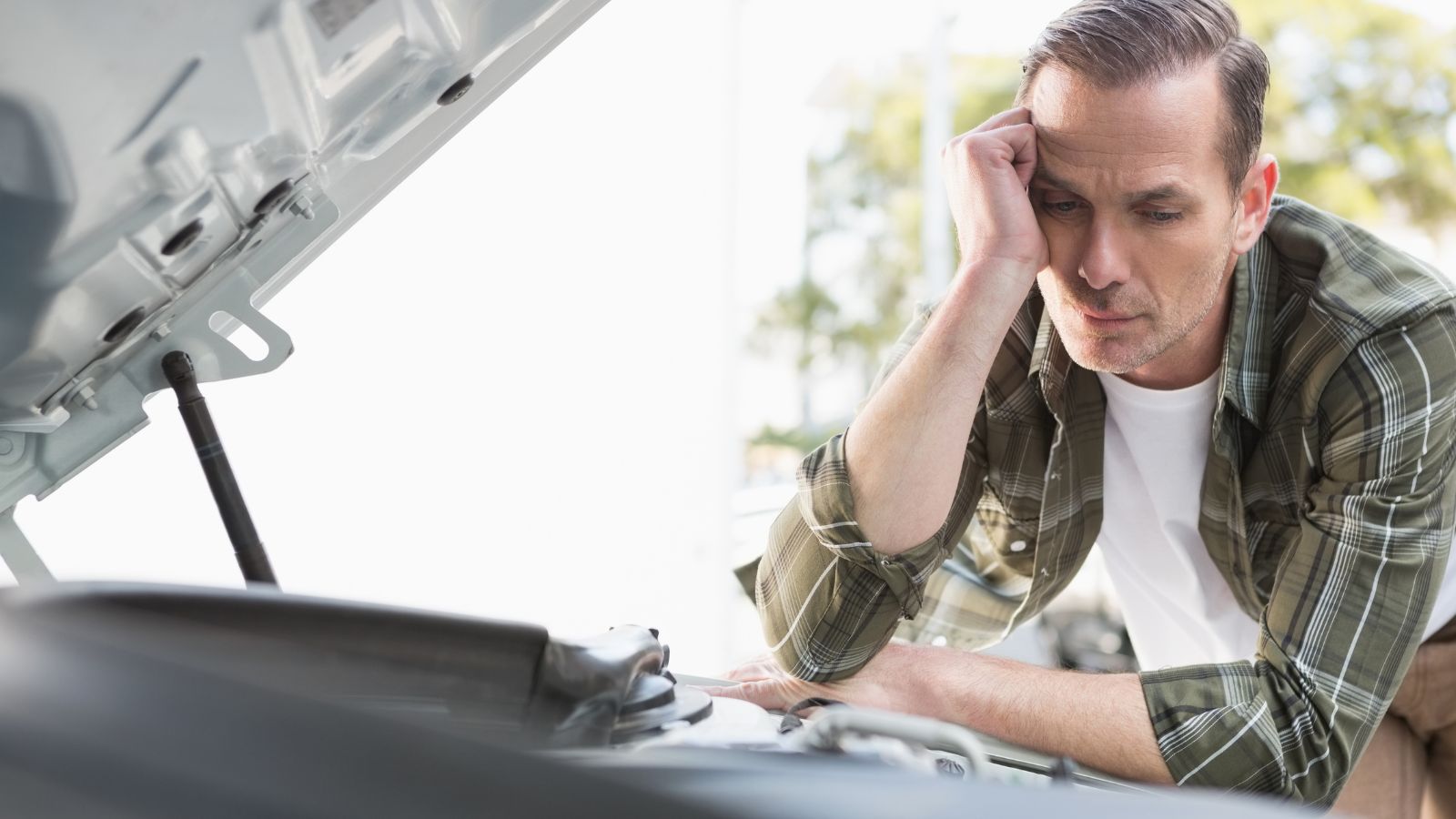There are several common causes that can lead to a car shutting off when stopping or slowing down. These causes include fuel system issues, electrical problems, and engine issues. When the fuel system is not functioning properly, it can result in a clogged fuel filter, a faulty fuel pump, or dirty fuel injectors.
Electrical problems such as a faulty ignition switch, malfunctioning sensors, or a weak battery can also cause the car to shut off. Additionally, engine issues like vacuum leaks, problems with the idle air control valve, or throttle body issues can contribute to the problem. It is important to identify and address these issues promptly to prevent further damage and ensure the safety of the vehicle and its occupants.
Table of contents
Symptoms of Car Shutting Off When Stopping or Slowing Down
When a car shuts off unexpectedly while stopping or slowing down, it can be a frustrating and potentially dangerous situation. There are several symptoms that may indicate a problem with your car’s engine or fuel system. One common symptom is the engine stalling or shutting off completely when you come to a stop or slow down. This can happen suddenly and without warning, leaving you stranded in traffic or at an intersection. Another symptom is a loss of power or a decrease in engine performance when you accelerate after stopping or slowing down. This can make it difficult to merge onto highways or pass other vehicles. A third symptom is a rough or uneven idle when the car is in neutral or park. The engine may sputter or shake, indicating a problem with the fuel mixture or ignition system. If you experience any of these symptoms, it is important to have your car inspected and repaired as soon as possible to prevent further damage and ensure your safety on the road.
Potential Damage Caused by Car Shutting Off When Stopping or Slowing Down
When a car shuts off unexpectedly while stopping or slowing down, it can lead to potential damage to various components of the vehicle. One of the main concerns is the loss of power steering, which can make it difficult to control the car.
Additionally, the sudden shutdown can cause the brakes to become less responsive, increasing the risk of accidents. Furthermore, the repeated stalling can put strain on the engine and transmission, potentially leading to costly repairs.
To avoid these potential damages, it is important to address the underlying causes of the car shutting off and seek timely repairs.
Fuel System Issues
Clogged Fuel Filter
A clogged fuel filter can cause your car to shut off when stopping or slowing down. The fuel filter is responsible for filtering out impurities from the fuel before it reaches the engine. Over time, the filter can become clogged with dirt, debris, and other contaminants, restricting the flow of fuel.
This can result in a lack of fuel reaching the engine, causing it to shut off. If you are experiencing this issue, it is important to have the fuel filter replaced as soon as possible to prevent further damage to the engine.
Faulty Fuel Pump
A faulty fuel pump can also cause your car to shut off when stopping or slowing down. The fuel pump is responsible for delivering fuel from the gas tank to the engine. If the fuel pump is not working properly, it may not be able to provide enough fuel to the engine, causing it to stall.
Common signs of a faulty fuel pump include engine sputtering, difficulty starting the car, and loss of power while driving. If you suspect a faulty fuel pump, it is important to have it inspected and replaced by a professional mechanic.
Dirty Fuel Injectors
Dirty fuel injectors can also cause your car to shut off when stopping or slowing down. Over time, fuel injectors can become clogged with dirt, debris, and carbon deposits, affecting their performance. When the fuel injectors are dirty, they may not be able to deliver the proper amount of fuel to the engine, resulting in a loss of power and stalling.
Regular maintenance, such as cleaning or replacing the fuel injectors, can help prevent this issue. It is important to address dirty fuel injectors promptly to avoid further damage to the engine.
Electrical Problems
Faulty Ignition Switch
A faulty ignition switch is another common cause of a car shutting off when stopping or slowing down. The ignition switch is responsible for controlling the electrical power to the vehicle’s engine and accessories. If the switch is faulty, it may not provide a consistent power supply, leading to the engine shutting off unexpectedly.
This can be a dangerous situation, especially if it happens while driving at high speeds. It is important to have a faulty ignition switch repaired or replaced as soon as possible to prevent further damage to the vehicle’s electrical system and ensure safe operation.
Malfunctioning Sensors
Malfunctioning sensors can also cause a car to shut off when stopping or slowing down. Sensors are responsible for monitoring various aspects of the vehicle’s performance and relaying information to the engine control unit (ECU). If a sensor is not functioning properly, it can send incorrect signals to the ECU, leading to engine shutdown.
Common sensors that can malfunction include the oxygen sensor, mass airflow sensor, and crankshaft position sensor. It is important to have these sensors checked and replaced if necessary to prevent further damage to the engine.
Weak Battery
A weak battery can also cause a car to shut off when stopping or slowing down. When the battery is weak, it may not provide enough power to keep the engine running at idle. This can result in the engine shutting off unexpectedly. If the battery is old or damaged, it may need to be replaced.
Additionally, a weak battery can also affect other electrical components of the car, such as the ignition system and sensors. It is important to have the battery checked and replaced if necessary to prevent further issues.
Engine Issues
Vacuum Leaks
Vacuum leaks are a common cause of car stalling when stopping or slowing down. A vacuum leak occurs when there is an unintended gap or crack in the vacuum system, which can disrupt the air-fuel mixture and cause the engine to shut off. Some common signs of vacuum leaks include rough idling, poor acceleration, and increased fuel consumption.
It is important to address vacuum leaks promptly, as they can lead to more serious engine damage if left untreated. To diagnose and repair vacuum leaks, it is recommended to seek the assistance of a professional mechanic.
Idle Air Control Valve Problems
One of the potential causes of a car shutting off when stopping or slowing down is idle air control valve problems. The idle air control valve is responsible for regulating the amount of air that enters the engine when the throttle is closed. If the valve becomes clogged or malfunctions, it can disrupt the air-fuel mixture and cause the engine to stall.
To diagnose and fix this issue, it is recommended to clean or replace the idle air control valve. Ignoring this problem can lead to further damage to the engine and other components of the car’s fuel system.
Throttle Body Issues
Throttle body issues can also cause a car to shut off when stopping or slowing down. The throttle body is responsible for regulating the amount of air that enters the engine. If the throttle body becomes dirty or malfunctions, it can disrupt the air-fuel mixture and cause the engine to stall.
Regular maintenance and cleaning of the throttle body can help prevent this issue. Additionally, problems with the throttle position sensor or the throttle body motor can also lead to stalling. It is important to address these issues promptly to avoid further damage to the engine.
Conclusion
Summary of Common Causes
The most common causes of car shutting off when stopping or slowing down include clogged fuel filter, faulty fuel pump, dirty fuel injectors, faulty ignition switch, malfunctioning sensors, weak battery, vacuum leaks, idle air control valve problems, and throttle body issues.
These issues can disrupt the fuel supply, electrical system, or engine performance, leading to the car shutting off unexpectedly. It is important to address these problems promptly to avoid potential damage and ensure safe driving. If you experience any of these symptoms, it is recommended to seek professional help for diagnosis and repairs.
Importance of Timely Repairs
Timely repairs are crucial when dealing with car shut-off issues. Ignoring the problem can lead to potential damage to various components of the car, such as the engine, fuel system, and electrical system. Additionally, a car that shuts off when stopping or slowing down can pose a safety risk, especially in areas with high pedestrian traffic. In fact, an increase in pedestrian fatalities in Missouri has been linked to cars shutting off unexpectedly. Therefore, it is important to address this issue promptly and seek professional help to diagnose and fix the underlying causes.
Seeking Professional Help
If you are experiencing your car shutting off when stopping or slowing down, it is important to seek professional help. Ignoring this issue can lead to further damage and potential safety hazards. GM Offers $1,400 in assistance for repairs related to this problem. By consulting a qualified mechanic, you can ensure that the underlying cause of the issue is properly diagnosed and repaired. Don’t delay in seeking professional help to prevent any further complications.

Thomas is a retired motor mechanic, father, and grandfather. He writes from his 20+ years in the automotive industry to help you find and solve anything related to car repairs, maintenance, and care.
